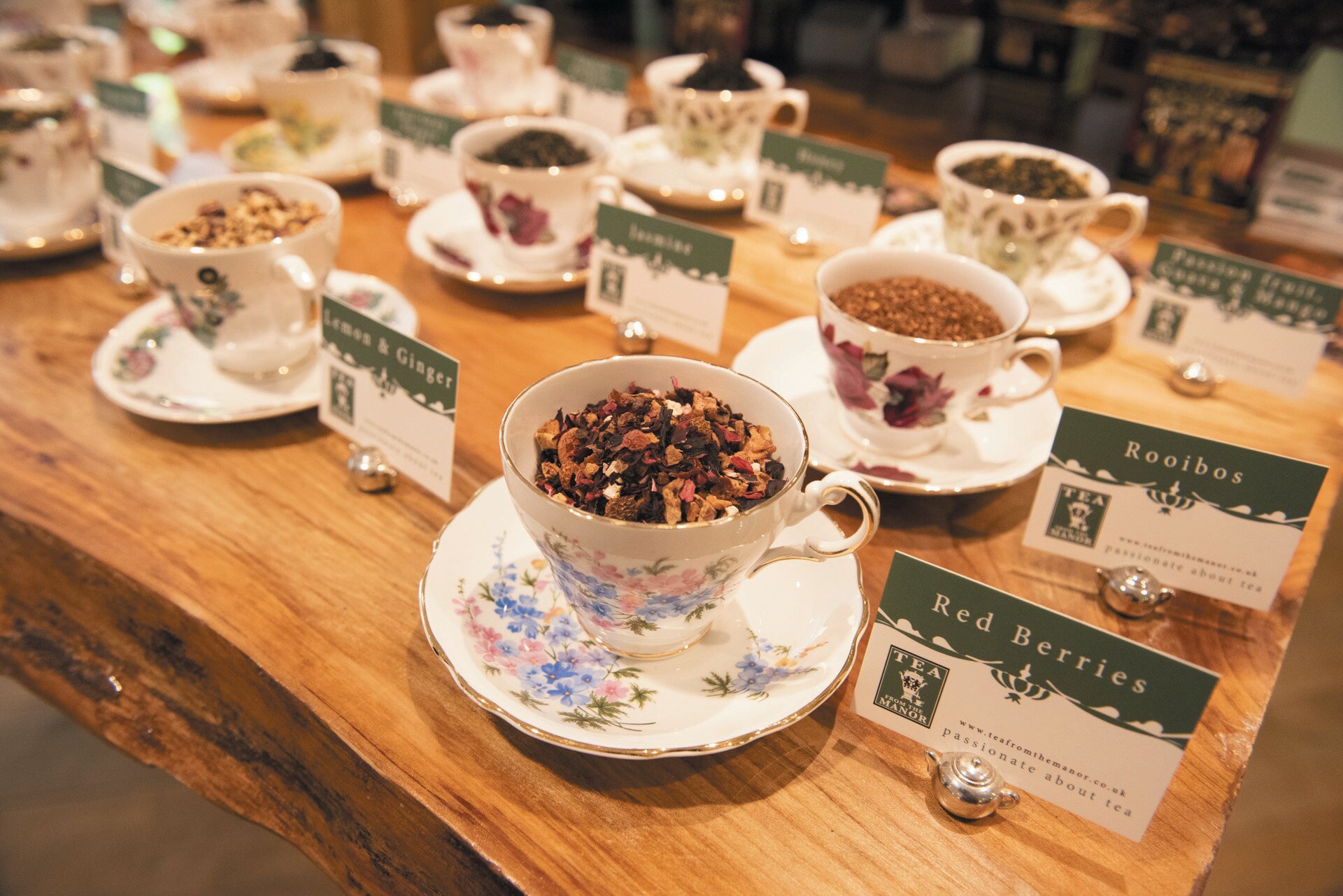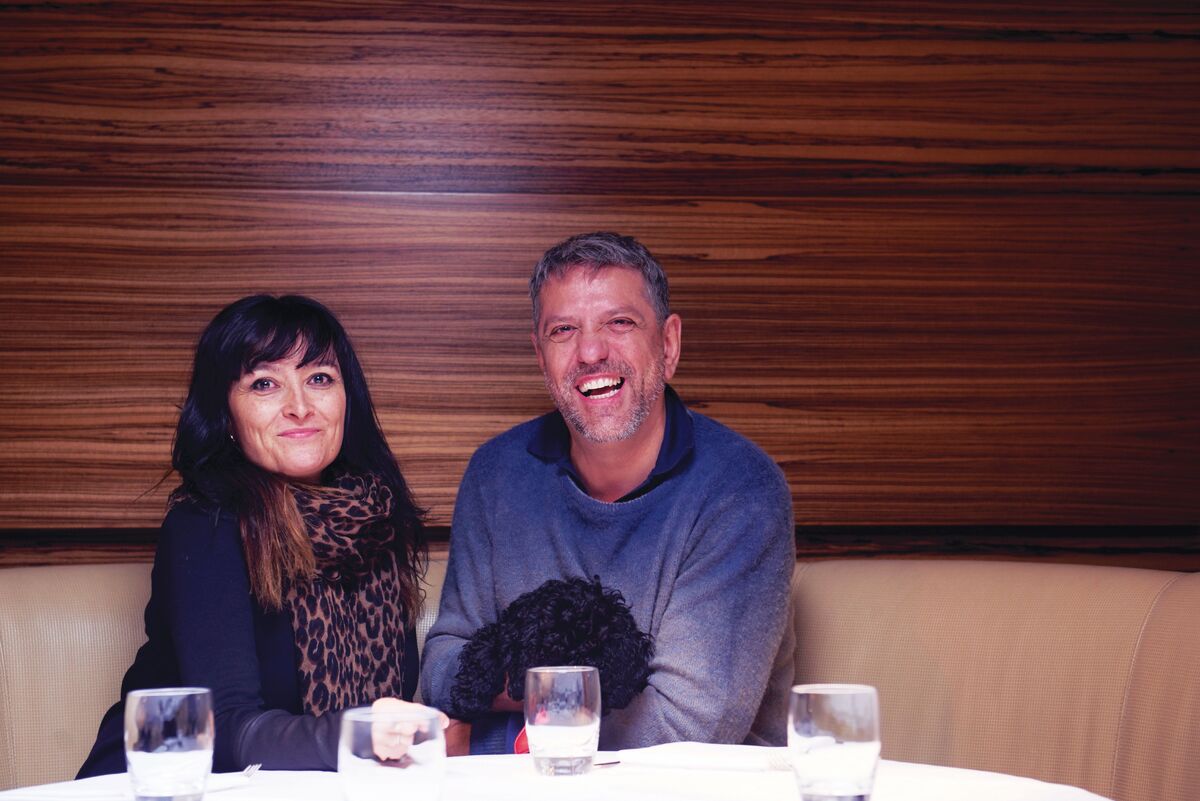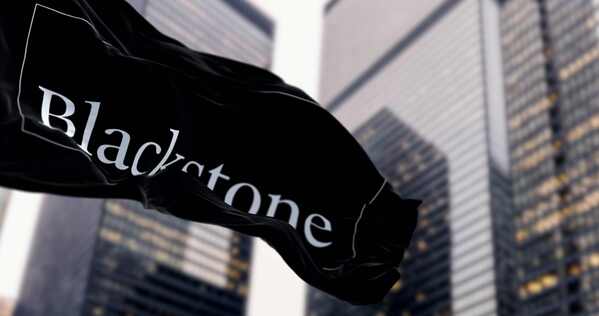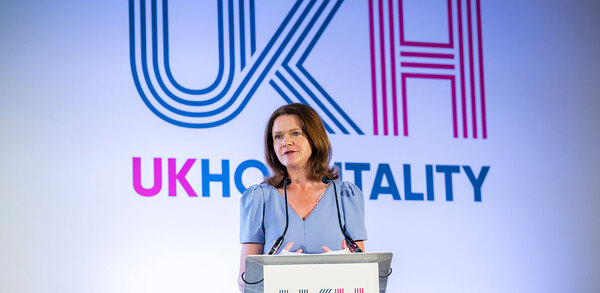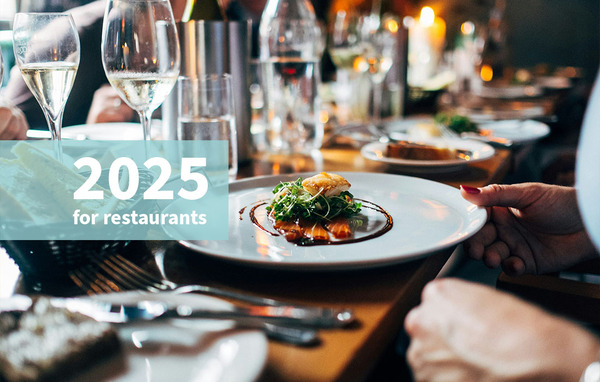Up for the cup: latest trends to the tea market
With plenty of new products around, caterers can turn tea into something much more satisfying – and profitable – than a poor relation to coffee in the hot drinks sector, as Ian Boughton explains
The classic British cuppa is still the most popular tea in Britain – and yet, customers still think the catering trade cannot make a decent cup of tea.
What is happening in the tea market? All brands in the tea sector love quoting market statistics, even though no two sets of figures agree. Recent ‘findings’ tell us that out-ofhome tea sales are going to boom, while other figures say Britons are drinking nearly a billion fewer cups of tea a year, and that sales for the five years to 2022 will fall by 13%.
More ‘statistics’ suggest that sales of herbal and fruit infusions, which are included in the tea market, have increased 20% in a year, or will grow at 5% a year to 2022. One survey reveals that 74% of caterers report an increase in requests for such teas, while one quite astonishing report claims that 21% of tea drinkers purchased a green, herbal or fruit tea on their last visit to a café.
Amid all this, probably the most realistic finding is an unwelcome one, but it’s on which several different sources actually agree: consumers do not consider tea out of home to be good value for money, and reckon it is not as good as home-brewed tea. And one survey reports that 40% of customers would choose the classic British tea, and pay well for it, if they could just be sure the tea was of high quality.
At Taylors of Harrogate, out-of-home manager Natalie King agrees that quality is an issue. She says that many of the people who drink tea at home opt for coffee in a café, and would be prepared to pay an extra 20p a cup if café tea were better.
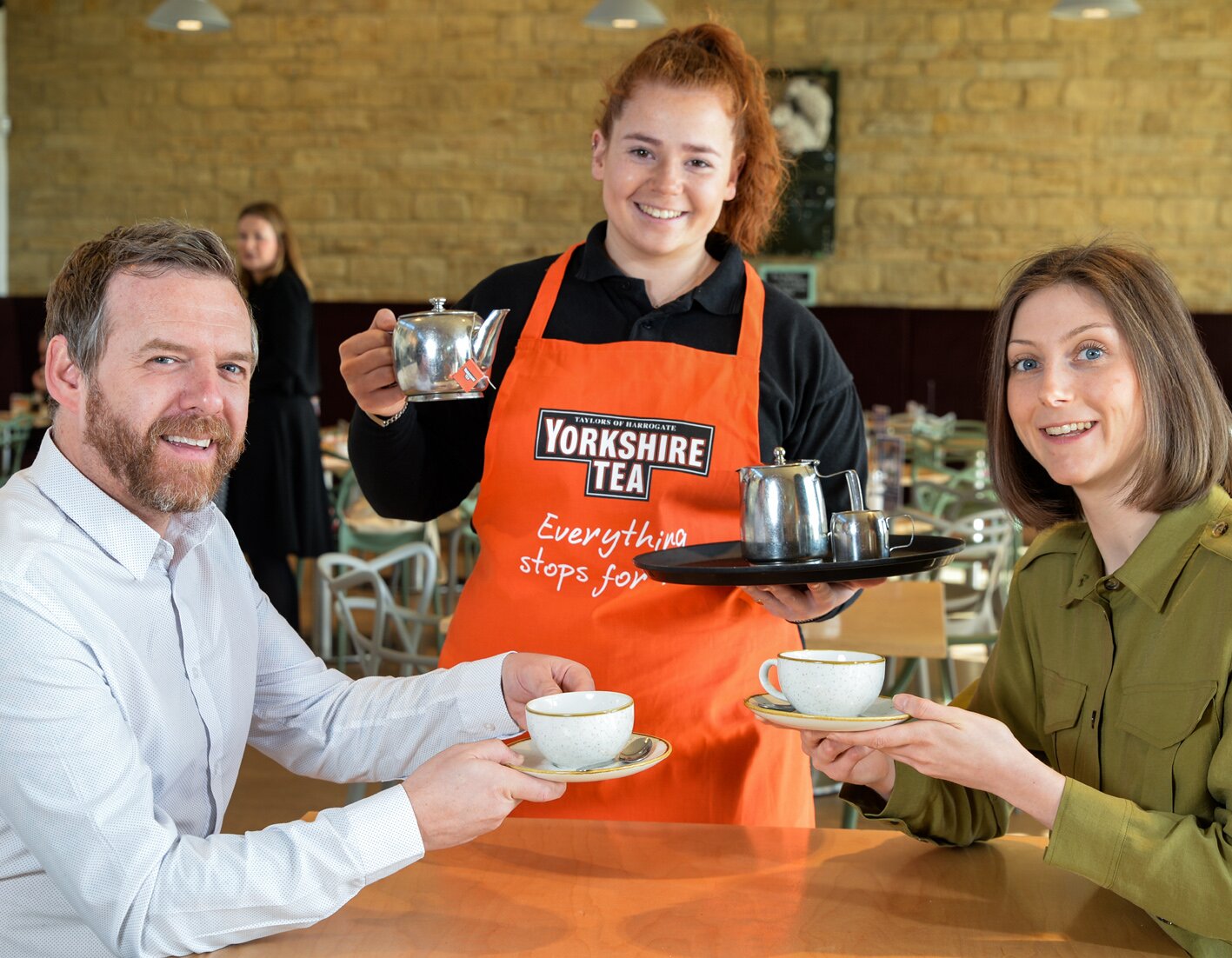
“Standard black tea is still the favourite, and over the past year, consumers have developed a more sophisticated palate, so you must build a strong foundation by offering good standard black tea first, before concentrating on others,” she says.
“Yorkshire Tea is currently the only major standard black tea brand to offer the same strength across all its products, following our move to increase the teabag weight of One Cup lines from 2.5g to 3.125g.”
But, she adds: “There’s still more that establishments can be doing to increase value perception among consumers.”
Customers consider taste the most important purchasing factor, according to Jacqui Chapman, marketing manager at Twinings Foodservice. She says good tea is the fastest-growing beverage on the menu, quickly closing the gap with coffee. “With the trend for a stronger brew, our new teas deliver greater strength. The pyramid bags use larger leaf tea than standard teabags, and retain intensity of flavour, giving a bold drink without bitterness.”
Twinings’ Full English blend has even been used in a new breakfast serve – an egg is poached in water that contains a pyramid bag, and served up on toasted sourdough with smoked salmon.
Back to black
Imaginative black teas encourage experimentation, says T2, the Australian producer which is now in the UK. Its Tea Society members number a million and a half across the world, and T2 says that three-quarters of them ‘highly anticipate’ their new blends.
T2 made its name with local breakfast teas – it creates one for every city where it has a base. A typical item is its Scots Breakfast tea, which is a black tea that has oat flakes, cocoa husks, cinnamon and vanilla added. The result has been described as being more creamy than bold. For this year, T2 has also created a Christmas Breakfast – black tea with ginger, cinnamon, honey, nutmeg and vanilla, which will take a variety of milks.
Presented well, black tea is the new cool drink, says Novus sales director Allan Pirret. “Demand is being driven by a backlash against sugary soft drinks, and the move away from alcohol among young people – more than a quarter of 16- to 24-year-olds are teetotal,” he says. “Brewing with accuracy can bring completely new flavour experiences to customers, even from blends they thought they knew well – even in English Breakfast tea there is still room for improvement.
“Typically, these teas are a blend of Assam for taste, and Ceylon or Kenyan for body and colour, but we’ve taken a different approach with a blend of three different whole-leaf Assam teas – a very tippy leaf for taste, one leaf for colour, and one for body and depth. It produces good colour when it is combined with milk.”
John Mellor at Shibui agrees that you can make black tea the hero of your menu. “Many caterers, including top-end restaurants and hotels, charge a premium for the speciality teas but serve bog-standard cheap teabags to customers who just ask for tea – they’re missing a trick! Certainly, they can buy in teabags cheap, but that will never get them anywhere. Breakfast tea is the one that signals to their customers that they care about serving a good tea. When customers see that they are served quality tea, they are willing to pay a bit more.”
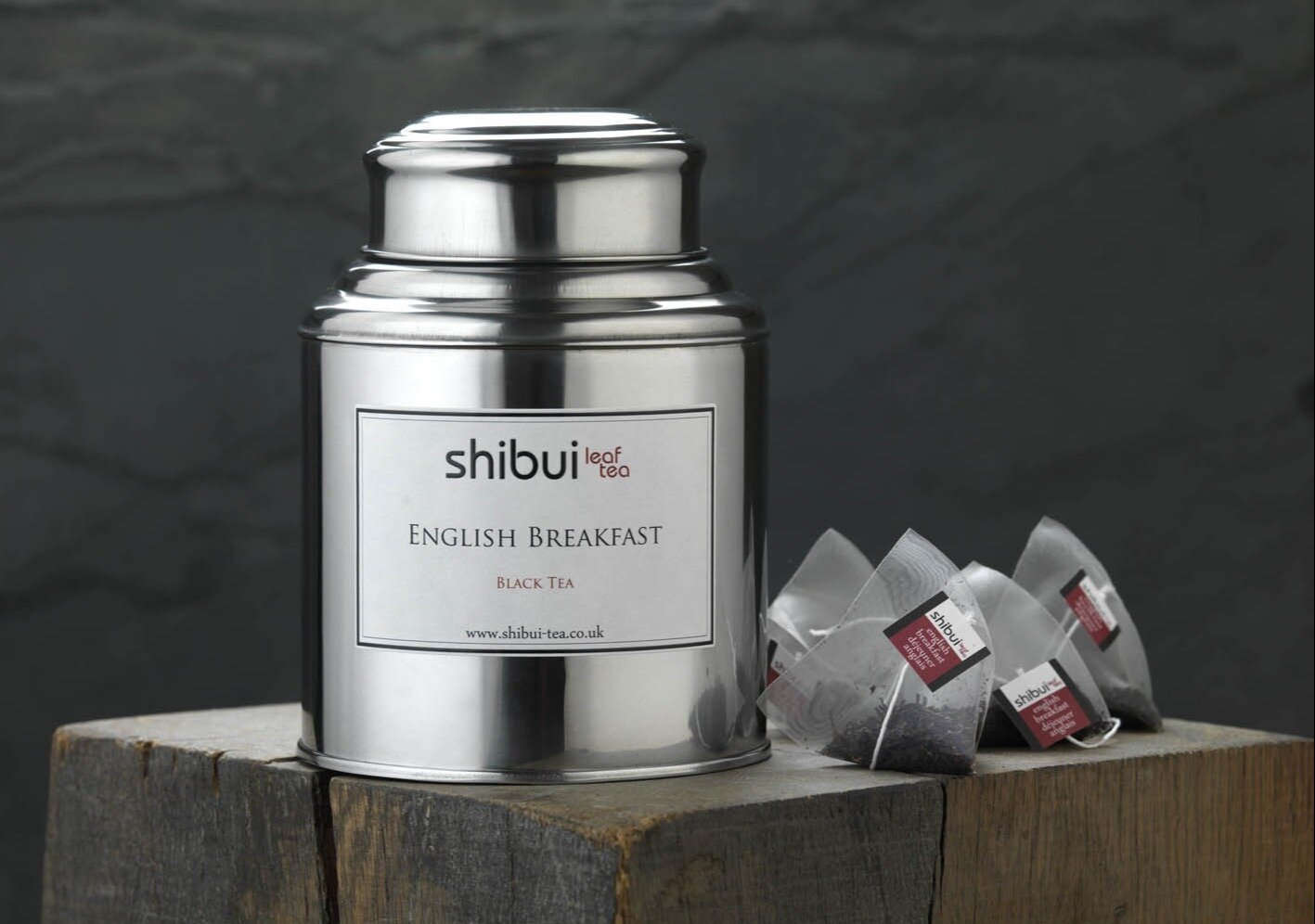
Curiously, the very newest product in the black tea sector is a quick-brew bag from Drury called Gun Wharf, an answer to the age-old problem of takeaway tea, says managing director Marco Olmi: “It was developed for a group of customers who operate railway station cafés, serving in 12oz takeaway cups. No customer wants to step onto a train with a cup that has a teabag in it!
“We have developed a pretty hefty 4g pyramid bag, with a blend of good-quality Assam and Kenyan, with a decent Ceylon. You stir it rather than let it stand and brew; it took some time to get this right, because you have to balance the brew and the flavour against the speed, but we now find that you can get a darned good extraction in 30 seconds. We have tested this in the field, and we find that a station kiosk customer generally has a few seconds to agitate the brew, and throw the bag into the bin, being left with a very good cup of tea to carry to the train.”
Infusions to the rescue
Are fruit and herbal teas the salvation of the market? One statistic says that a third of 25- to 34-year-olds drink half a dozen different kinds a month, which is surprising but good news if true. And nearly all brands report increased consumer interest in wellness drinks.
At the Lowry hotel in Manchester, general manager Adrian Ellis says that customers now recognise differences in fruit and herbal tea quality: “While herbal teas have seen growth, there is still a public misconception that flavoured teas don’t deliver,” he says.
“There is a belief that fruity teas are made from artificial flavourings, and are style over substance. We combat this by showing the quality of our teas and how they are made. Nothing is artificial; we use dried pieces of fruit and botanicals – everything is real.”
Possibly uniquely, the Lowry allows guests to create their own flavoured tea. Guests can create a bespoke blend from a base leaf – black, green or white – followed by their selection of flavourings.
At Tetley, brand manager Michelle Jee reports that matcha and green tea are being ordered far more frequently than last year. She says the growth is so significant that beverage operators should now be conducting staff tasting sessions to debate what is new in the tea market, brewing times and techniques, and serving options. Of her customers who have done this and refreshed their tea menus, 90% reported an increase in sales.
Eteaket of Edinburgh has been blending new fruit teas for winter. Its Chai a Little Kindness blend has a base of rooibos, with orange and lemongrass, cinnamon pieces, ginger and cardamom. Eteaket’s Let’s Mull it Over winter product is a non-alcoholic recreation of mulled wine, from apple bits, orange peel, cinnamon sticks, star anise and cloves. “It has a distinctive festive taste on its own,” says the company, “or you can add it to a mulled wine.”
Natural goodness is the aim of Wilderness Teas, where founder David Williams is a former fine-dining chef who became interested in blending his own herbal teas.
“I got tired of the typical mass-produced herbal teas, and I found that pure, clean and natural teas were not widely available. I specialise in blending herbs, plants and flowers, using ethical and sustainable ingredients to create teas that energise, uplift and detox the mind and body. Working as a chef taught me to understand and respect ingredients. You need to start with the best available ingredients and combine them with a strong methodology, inspiration and flair.”
Challengingly, the brand Botanic Lab says that “social lubricant” healthy botanical teas are “what tea drinkers have been waiting for”. The most attention-grabbing is Dutch Courage, a green tea infused with CBD, the cannabis extract said to have benefits ranging from anxiety reduction to sleep promotion and appetite stimulus. It does not deliver a high; Botanic Lab says it has “taken the healthy bits of cannabis, the most culturally significant plant ingredient of the last 100 years, and put them in a drink”
Boxing clever
Joe’s Tea of London has devised the ‘matchbox’, a dinky little package which contains just one pyramid bag of its Ever-So-English Breakfast tea. It is offered as a classy alternative to the usual hotel-room sachet. Founder Joe Kinch says: “The boxes are now used across an array of boutique hotels.”
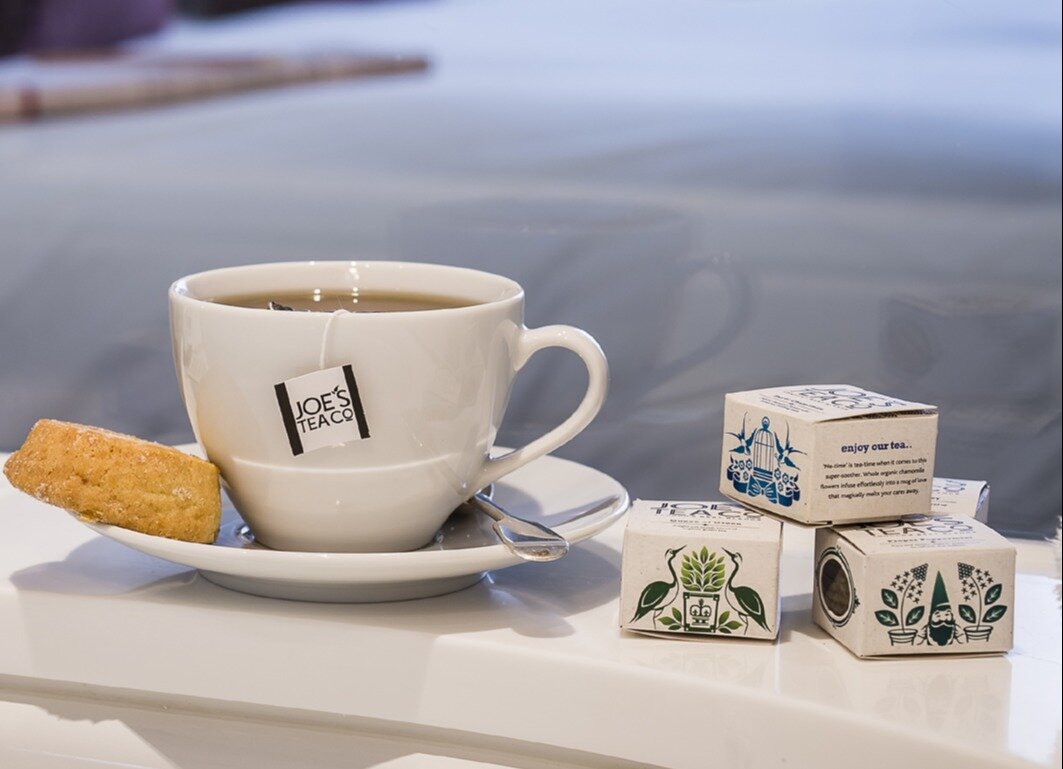
Plastic-free tea
A big current issue in the teabag world is microplastics in tea, and several brands have been quick to establish their eco-credentials. Eteaket of Edinburgh has launched a Plastic-Free Tea Club to encourage foodservice clients to consider the issue, while Clipper says it has matched its plastic-free teabags with fully recyclable bag envelopes.
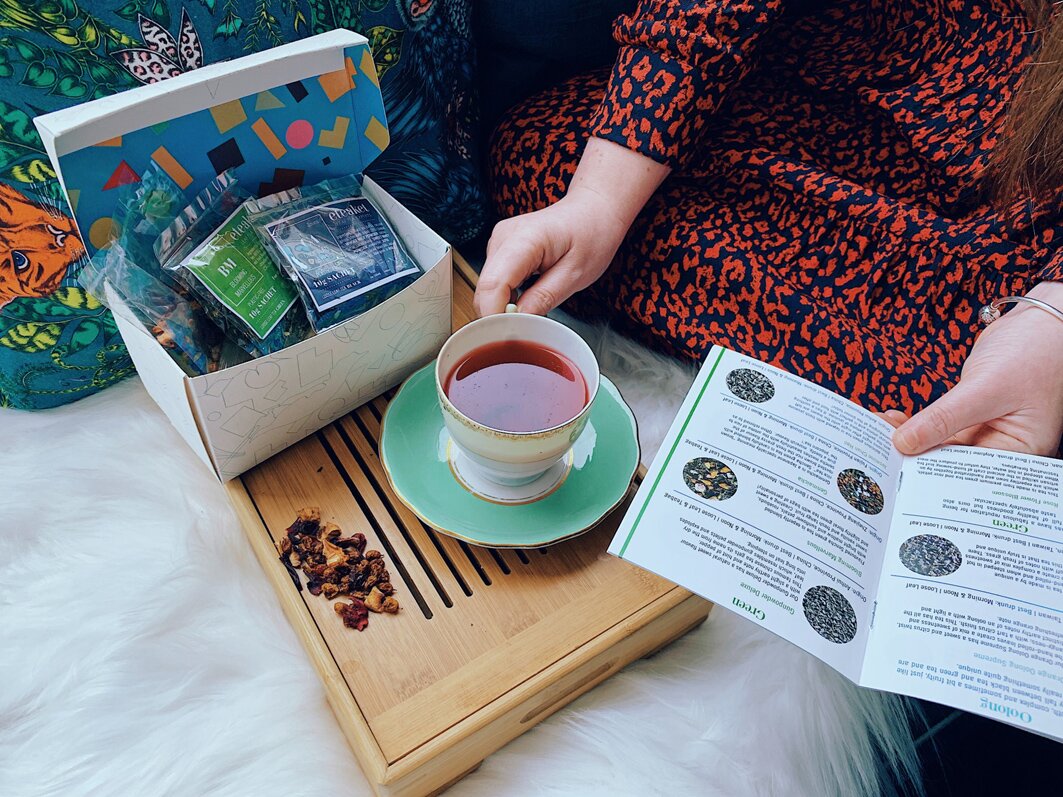
At Teapigs, trade marketing manager Andy Byron reports that many enquiries have been received about plastic. “We try to be very clear about this,” he says. “Our tea ‘temples’ are made from Soilon, which is a PLA [polylactic acid] made by fermenting the sugars in corn starch to turn it into a material that looks like plastic – or in the case of our tea temples, nylon – but is totally plant-based.
“PLA’s chemical structure is the same as conventional plastic, except that it is fully plant-derived and fully compostable in the right conditions. Our tea temples will break down into harmless, natural elements at industrial composting facilities, such as your council food waste collection, within 12 weeks.”
Suppliers
- Botanic Lab www.botanic-lab.co.uk
- Clipper www.clipper-teas.com
- Drury www.drurycoffee.com
- Eteaket www.eteaket.co.uk
- Joe’s Tea www.joesteacompany.com
- Novus www.novustea.co.uk
- Shibui www.shibui-tea.co.uk
- T2 www.t2tea.com/en
- Taylors www.taylorsoutofhome.co.uk
- Teapigs www.teapigs.co.uk
- Tetley www.tetleyfoodservice.co.uk
- Twinings www.twinings.co.uk/food-service
- Wilderness www.wildernessteas.com



